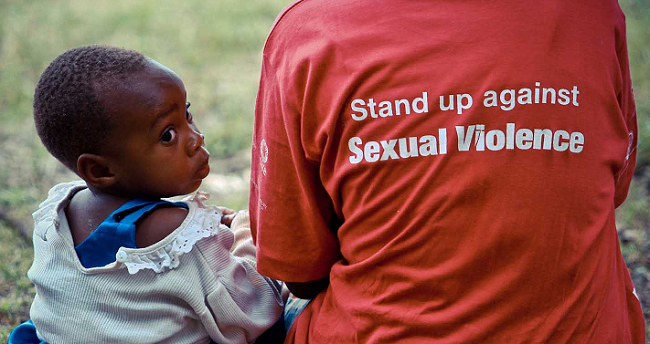
Sexual, gender-based cases are heartbreaking
Cases of sexual and gender-based violence (SGBV) are heartbreaking through physical, sexual and/or psychological distress. These cases are defined as violence directed against a person because of that person's gender (including gender identity/expression) or as violence that affects persons of a particular gender disproportionately.
Advertisement
Women and girls, of all ages and backgrounds, are most affected by gender-based violence, which includes violence in close relationships; sexual violence (including rape, sexual assault and harassment or stalking); slavery; harmful practices such as forced marriages, female genital mutilation (FGM) and so-called ‘honour’ crimes, as well as cyber-violence and harassment using new technologies.
Two pathetic stories
Last week, the case of the policeman, Lance Corporal Wilfred Dodzi Amuzu, 32, with the Tema Regional Rapid Deployment Force (RDF) Unit, who shot and killed his mother-in-law, Mary Quarshie, 62, his one-year-and-seven-month-old son, Elikem Amuzu, and his three-month old baby, Xorlali Amuzu, before shooting himself in an uncompleted apartment located between the Devtraco Courts Estates and the Kpone Affordable Estates area, attracted attention in both the print and electronic media.
The 29-year-old widow escaped death narrowly as she had gone to visit her sister at Ashaiman, to seek some financial assistance. She only returned home later that evening to find out that her husband had killed her mother and her two children.
Yet another pathetic story earlier this month was the case of a 38-year-old man, Sampson Kwabena Ohene, who was detained by the Dansoman Police for allegedly beating her girlfriend, Madam Beatrice Ama Osaah, 48, a trader at the Dansoman Market, to death with a plastic stool.
The two are said to have been cohabiting for the past 10 years and had two kids, who are six and three years, and the incident occurred after a disagreement over the switching off of a ceiling fan in their single room.
Ghana, like many other countries in sub-Saharan Africa, continues to experience high rates of sexual and gender-based violence that involves a wide variety of perpetrators ranging from intimate partners and family members, to strangers and institutional actors such as police, teachers and soldiers.
Gender-based violence is a term used to describe any harmful act perpetrated against a person, and is based on socially ascribed differences between males and females.
Other Trending Stories
While men and boys can be victims/survivors of some types of sexual and gender-based violence around the world, it has a greater impact on women and girls.
Records at DOVVSU
Records available at the Domestic Violence and Victims Support Unit (DOVVSU) of the Ghana Police Service indicate that between 2009 and 2013, the total number of sexual and gender-based violence cases recorded nationwide was 84,142.
Out of this, 20,693 were assault on women; 1,689 were rape cases and defilement accounted for 5,697.
Statistics from DOVVSU in 2014 also showed that out of the 17,778 cases of various forms of violence reported nationwide, 4,415 were assault on women, defilement of girls accounted for 1,296; while in 2015 a total of 15,749 SGBV cases were recorded with 5,361 cases being assault on women; 315 being rape cases, and defilement accounting for 1,179.
To consolidate and strengthen all the initiatives and strategies towards curbing sexual and gender-based violence in Ghana, the Danish International Development Agency (DANIDA) came on board to support the implementation of a one-year project titled ‘Ending Sexual and Gender-based Violence in Ghana’.
With support from DANIDA, the Ministry of Gender, Children and Social Protection expanded its efforts through the ‘Ending Sexual and Gender-based Violence in Ghana’ project, between April 2015 and April this year.
Enhance capacities
A project brief by the Gender Ministry, on ending sexual and gender-based Violence in Ghana, made available to the Daily Graphic indicated that one of the result pillars in the project was to enhance capacities of communities and organise men’s groups to prevent and report the incidence of SGBV.
The overarching objective of the project partnership was to obtain a significant and sustained reduction in the incidence of sexual and gender-based violence in the country.
Its specific objectives were to improve service delivery from the justice sector in handling sexual and gender-based violence cases, enhance capacities of communities and organised men’s groups to prevent and report the incidence of SGBV, sensitise religious and traditional leaders to better understand the damaging practices and consequences of SGBV and foster strong partnerships with the media through the demystification of SGBV for journalists and media practitioners to facilitate gender-sensitive reporting.





